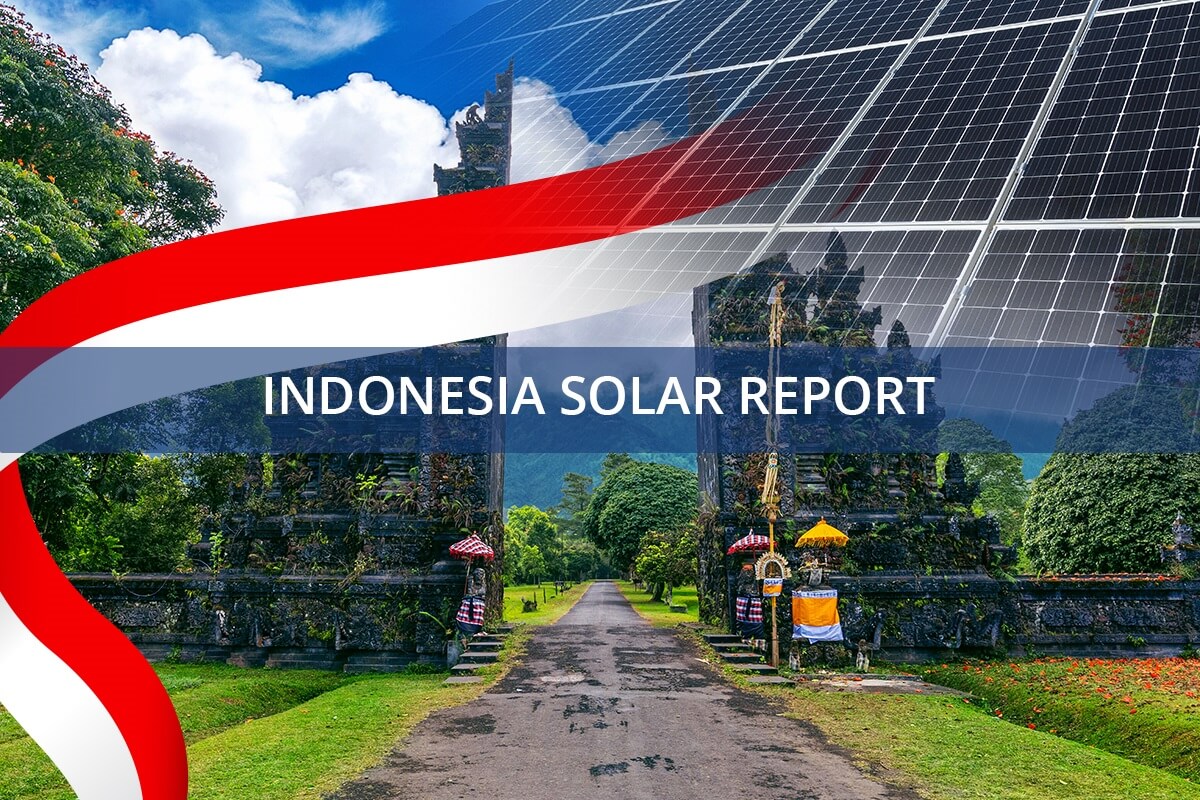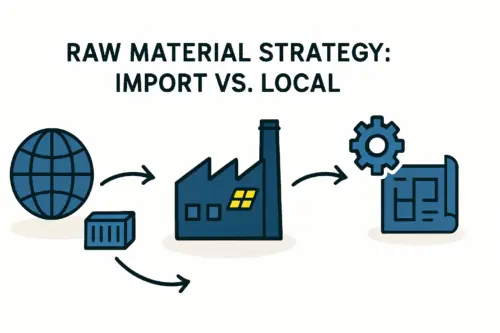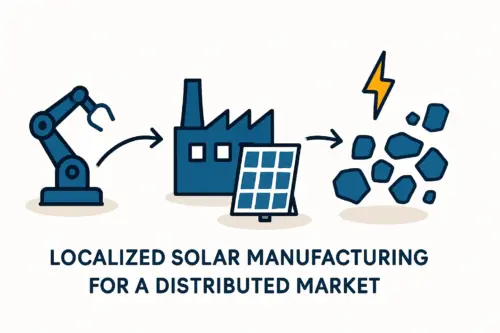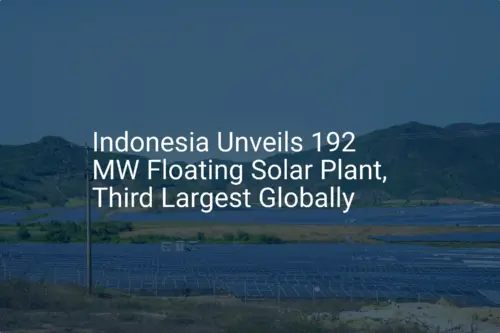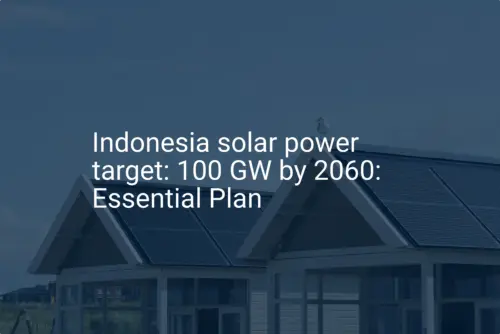For any entrepreneur launching a solar manufacturing facility, the business plan is built on critical numbers: meticulously calculated projections for capital expenditure, operational costs, and revenue. Yet, an often-overlooked variable can fundamentally alter these figures—government incentives.
In Indonesia, a strategic policy known as the ‘Tax Holiday’ can eliminate corporate income tax for up to 20 years, offering a significant financial advantage to new investors in the photovoltaic sector. Navigating the application for this incentive is more than an administrative task; it’s a crucial component of financial planning and project de-risking. This guide breaks down the tax holiday application process, outlining the requirements, steps, and strategic considerations for securing this powerful government support.
Understanding the Opportunity: What is an Indonesian Tax Holiday?
A tax holiday is a fiscal incentive granted by the Indonesian government to attract significant investment into specific, high-priority sectors known as ‘Pioneer Industries.’ Rather than a simple tax reduction, it offers a complete or partial exemption from corporate income tax for a defined period.
The legal framework for this incentive is primarily established by the Ministry of Finance Regulation No. 130/PMK.010/2020 and the Investment Coordinating Board (BKPM) Regulation No. 4/2021.
Why Solar Manufacturing is a ‘Pioneer Industry’
The Indonesian government has designated the renewable energy sector, including the upstream manufacturing of photovoltaic components, as a Pioneer Industry, signaling a national strategic priority. By incentivizing the establishment of local solar module factories, the government aims to:
- Reduce reliance on imported solar panels.
- Develop a domestic industrial ecosystem for renewable energy.
- Create skilled employment opportunities.
- Support the nation’s energy transition and climate goals.
For investors, this designation is the key to unlocking the most favorable incentives, including the corporate income tax holiday.
Eligibility Requirements: Is Your Project a Candidate?
To qualify for the tax holiday, a project must meet specific prerequisites related to its legal structure, investment value, and economic contribution. The government assesses each application against a clear set of criteria.
Minimum Capital Investment
The scale of the tax holiday is directly tied to the value of the planned capital investment. This investment is outlined in a formal Capital Investment Plan, which is a key part of your solar manufacturing business plan and forms the basis of the application.
The tiers are as follows:
- 100% Tax Reduction: For new investments with a value of at least IDR 500 billion (approximately USD 31 million). The duration of this full exemption ranges from 5 to 20 years, depending on the investment amount.
- 50% Tax Reduction: For new investments with a value between IDR 100 billion and IDR 500 billion (approximately USD 6.25 million to USD 31 million). This partial exemption lasts for 5 years.
Once the initial tax holiday period ends, all beneficiaries receive an additional two-year transition period with a 50% reduction in corporate income tax.
Legal and Administrative Status
Beyond the financial threshold, the applying entity must meet several legal requirements:
- Status as a New Taxpayer: The incentive is designed for new investment projects. The applicant must be a newly established Indonesian limited liability company (Perseroan Terbatas or ‘PT’).
- Business Identification Number (NIB): The company must be registered through the Online Single Submission (OSS) system and possess a valid NIB.
- Pioneer Industry Classification: The company’s line of business must fall under one of the officially recognized Pioneer Industry classifications (KBLI codes), which includes the manufacturing of semiconductors and other electronic components like photovoltaic cells and modules.
The Application Process: A Step-by-Step Walkthrough
The application is centralized through Indonesia’s Online Single Submission (OSS) system, designed to provide a more transparent and efficient process for investors.

Step 1: Submission via the Online Single Submission (OSS) System
The process begins digitally. Investors submit the application through their newly established PT via the official OSS portal. This initial submission must include all required documentation, with the Capital Investment Plan as its centerpiece.
Step 2: Verification by the Investment Coordinating Board (BKPM)
Once submitted, the application is reviewed by the Investment Coordinating Board (BKPM), which verifies that the project meets all prerequisite conditions:
- The planned investment value meets the minimum threshold.
- The business activity qualifies as a Pioneer Industry.
- All legal and administrative documents are complete and accurate.
Based on J.v.G. Technology’s experience with turnkey projects, ensuring the Capital Investment Plan is comprehensive and perfectly aligned with government requirements at this stage is crucial for avoiding delays.
Step 3: Approval and Decree from the Ministry of Finance
Following successful verification by BKPM, the application is forwarded to the Ministry of Finance. The Minister of Finance issues the final decision in the form of an official decree (Surat Keputusan Menteri Keuangan), which formally grants the tax holiday. The process, from submission to the issuance of the final decree, typically takes several months and should be factored into the overall project timeline for setting up a solar factory.
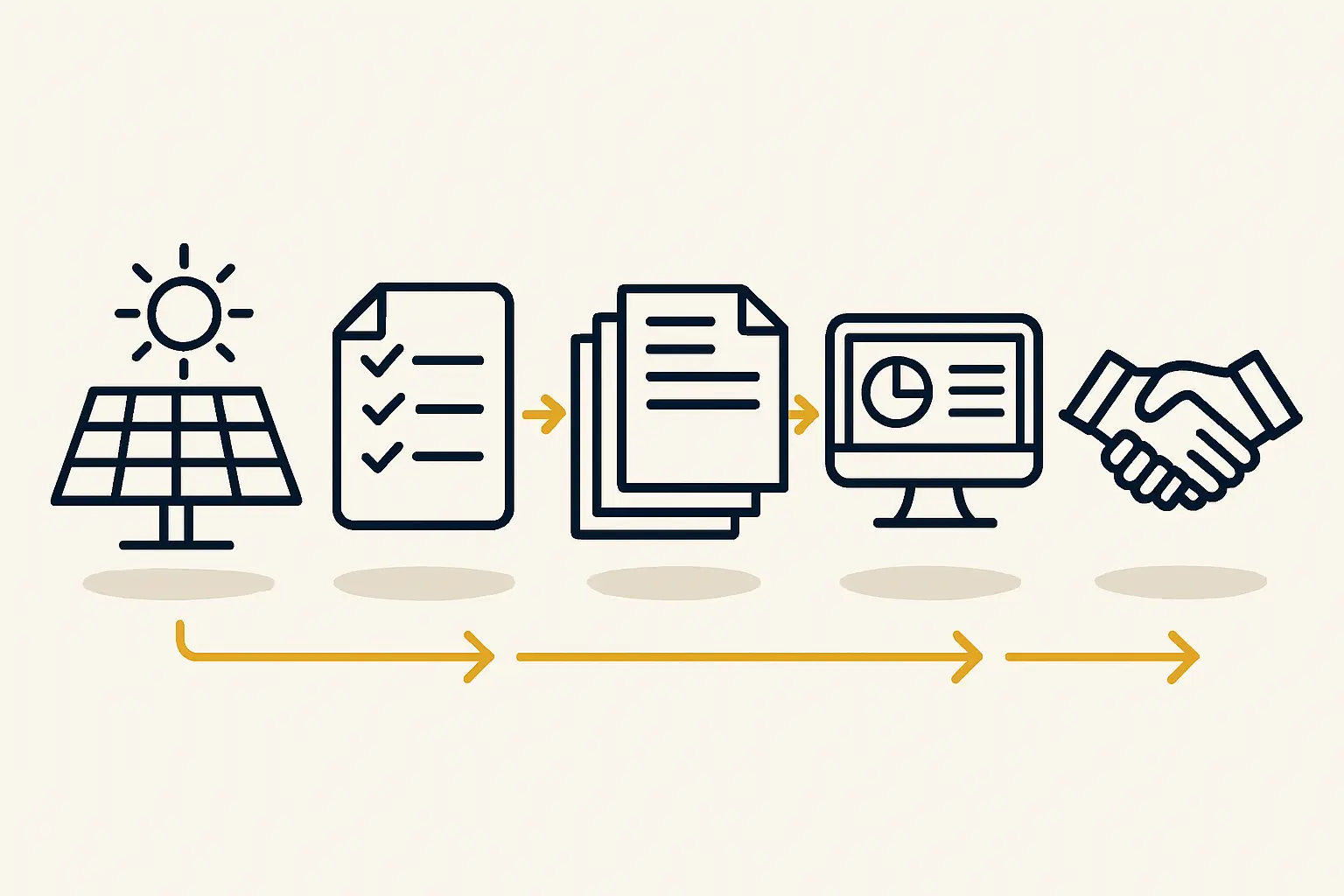
Beyond the Tax Holiday: Import Duty Exemptions
In addition to the corporate income tax holiday, investors in Pioneer Industries can also apply for exemptions on import duties—a valuable incentive that lowers initial capital expenditure. The exemption typically covers:
- Machinery: For the initial setup of the production line.
- Goods and Materials: Raw materials and components required for production, usually for a period of two to four years.
This application is also processed through the OSS system and is often pursued in parallel with the tax holiday application.

Frequently Asked Questions (FAQ)
-
Can an existing company apply for the tax holiday?
No, the incentive is specifically for new corporate taxpayers. An investor would need to establish a new legal entity (PT) in Indonesia for the project. -
Is the investment threshold based on planned or realized investment?
The application is based on the planned investment as detailed in the Capital Investment Plan submitted through the OSS system. The government will later monitor the realization of this investment. -
How long does the application process typically take?
While the OSS system has streamlined the process, investors should anticipate a timeline of 3-6 months from submission to receiving the final decree from the Ministry of Finance. -
What happens if my investment plan changes after approval?
Any significant changes to the Capital Investment Plan must be reported to the BKPM. Substantial deviations could affect the status of the tax holiday, which makes clear communication with the authorities essential. -
Does the tax holiday cover all taxes?
No, the incentive applies specifically to corporate income tax. Other taxes, such as Value Added Tax (VAT) and employee income tax, are still applicable.
Next Steps in Your Investment Journey
Securing fiscal incentives like Indonesia’s tax holiday is a foundational step in establishing a financially robust solar manufacturing operation. It demonstrates a clear alignment between an investor’s objectives and the nation’s strategic goals.
While this guide outlines the procedure, a successful application hinges on meticulous preparation, particularly in developing a credible and detailed solar manufacturing business plan. With the right financial structure and a clear understanding of the regulatory landscape, investors can significantly enhance the viability and long-term profitability of their venture in one of Southeast Asia’s most promising solar markets.

